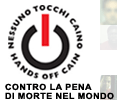|
EU IMPOSES STRICT CONTROLS ON 'EXECUTION DRUG' EXPORTS
December 21, 2011: The European Commission has imposed strict controls on the export of drugs used to carry out lethal injections.
EU firms wanting to export drugs such as the sedative sodium thiopental will now first have to ensure the product is not going to be used for executions.
The ruling could slow down the rate of executions in the US, where the drug must be used by law in lethal injections but is in short supply.
The European Commission - the executive arm of the EU - said it wanted to ensure that no drugs were being exported from the union for use in "capital punishment, torture or other cruel, inhuman or degrading treatment or punishment".
Sodium thiopental is legally required to be used in lethal injections in the 34 US states that still practice the death penalty.
It is the first of three drugs used for executions, intended to make the condemned person unconscious before deadly drugs are administered.
Earlier this year its only US manufacturer, Hospira, stopped making the drug.
It is still made in Britain, Italy, Germany, Austria and Denmark, but in April, an emergency export ban was imposed in the UK after the human rights group Reprieve sued the government.
Indian produce Kayem Pharmaceuticals has also said it will no longer sell the drug to US prisons.
The shortage in the US has already led to a marked decreased in the number of executions being carried out.
Some states have stockpiled sodium thiopental while others switched to using an alternative, pentobarbital, but that is also covered by the EU ban.
The Danish manufacturer of pentobarbital, Lundbeck, has objected to the "distressing misuse" of its product, designed for epilepsy treatment, and introduced checks to ensure it is not shipped to US prisons. (Sources: BBC, 21/12/2011)
|

